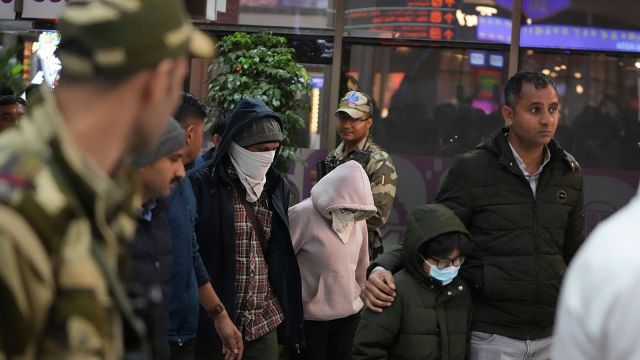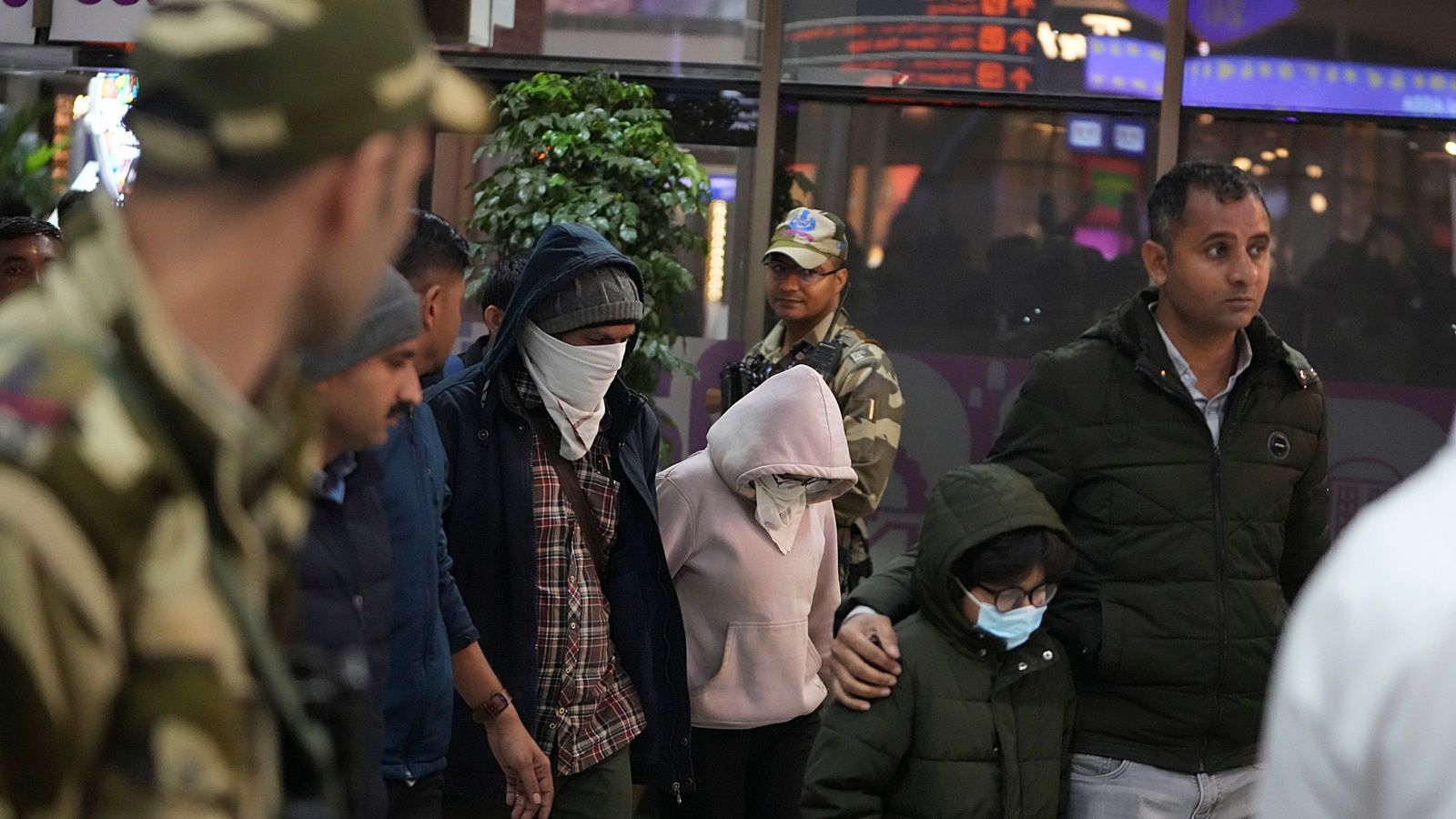

New DelhiFeb 7, 2025 11:48 IST First published on: Feb 7, 2025 at 11:47 IST
The image of Indians being deported from the United States — in a military aircraft and in handcuffs — has left many of us reeling with a profound sense of pain. That our fellow citizens, brothers and sisters who were hoping for a better life, should return to their homeland in such humiliating circumstances, is not just an individual tragedy but a national humiliation that demands an urgent and collective response.
Can we ignore that a personality-driven foreign policy — one that focuses on high-profile visits and photo-ops — often sidelines the careful, consistent diplomacy required to safeguard citizens caught in legal wrangles overseas? Dramatic gestures, while visually captivating, can overshadow the day-to-day work of ensuring that people in distress receive prompt consular support. We have witnessed a proclivity to celebrate the global Indian diaspora at lavish, leader-centric events for personal branding. Yet when the most vulnerable members of the diaspora face detention, deportation, or loss of livelihoods, they are left without adequate governmental assistance.
Story continues below this ad
We are forced to confront a disturbing question: Why are our people willing to take such grave risks to escape India? For every person forcibly returned, there is a deeper wound — a story of systemic failures that push individuals to leave in desperation. Our society’s inability to provide for all or to instil hope in every corner of the country stands exposed in the videos of those arriving back in India against their will, stripped of the dreams that once propelled them.
We cannot overlook the structural inequities and glaring economic conditions that have driven so many Indians to choose perilous journeys over the certain hardships at home. From chronic underemployment to meagre wages, from rural distress to urban squalor, these are not mere “push factors”; they are signs of a systemic neglect that has gone on for decades. Global inequalities add further complications, but the foundational issue is that our own house remains in disarray. When young men and women see no viable pathways in India — stable livelihoods, no dignified employment — it becomes a desperate necessity to attempt any means to secure a better future abroad, even if it means overstaying visas or entering countries without proper documentation.
In moments like this, we must remind ourselves that the Indian government has a constitutional and moral responsibility to protect its citizens — wherever they may be. This does not end at our borders. Consular officials should have stood vigilant to ensure dignity in the deportation process, yet the humiliating scenes suggest otherwise. As many more Indians now face deportation proceedings, it is imperative that our authorities step up to ensure that excessive force or degrading conditions are avoided in what is inevitably a painful process.
Story continues below this ad
The Indian government cannot remain passive or merely reactive. First and foremost, there should be transparency about the number of deportations. The Indian consulate must provide comprehensive support, including legal and logistical help, to those who face deportation. Many would leave behind bank accounts, vehicles, mortgages, or other assets in the US, which they still legally own. They must be helped with logistics to access or manage these from India. Working with the diaspora and civil society, we must proactively support Indians in protecting and liquidating their property before or soon after deportation. Without such measures, individuals risk spiralling into even greater financial ruin, compounding their distress.
most read
We wonder if there are any unaccompanied minors, pregnant women, and others with pressing medical or psychological needs among those who are slated to be deported in the near future. We worry for the families and the treatment children and women would face during these forced removals. And what would be the fate of the deportees back in India? Many would have no safety net waiting for them. Some would return to debts accumulated by their migration, while others must face the stigma of having “failed” to settle abroad.
At stake is more than the fate of individuals who have pinned their hopes on foreign shores. The dignity and moral fabric of our nation are tested by how we treat the most vulnerable among us — those who left the country out of dire need and returned in anguish. If India truly aspires to be a global power, it must start by ensuring that its citizens do not feel the need to flee the country to prosper. These deportations demand a reckoning with the underlying economic inequities and a collective determination to create a more inclusive and dignified homeland.
The writer is Member of Parliament (Rajya Sabha), Rashtriya Janata Dal



